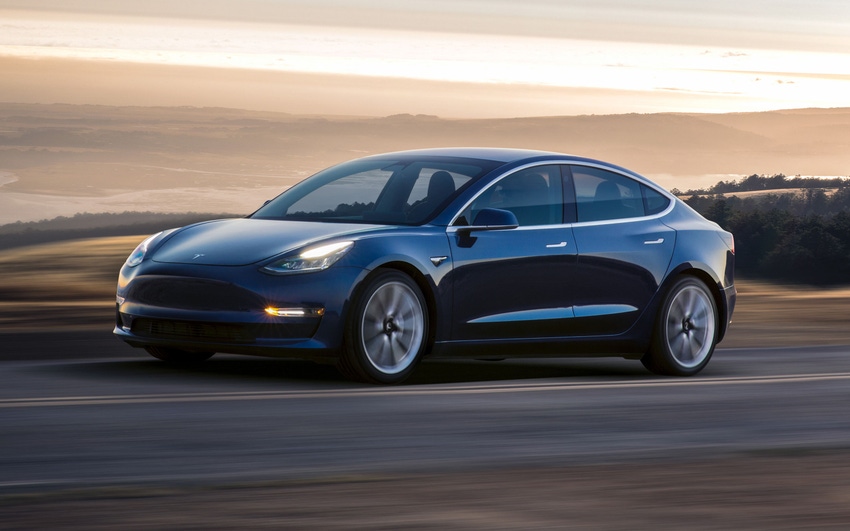In the long run, Consumer Reports expects electric cars to be more reliable than gas-burning cars.
November 2, 2018

Tesla Inc. did poorly in Consumer Reports’ latest reliability survey. But its performance was related to the company’s penchant for adding high-tech features to its vehicles, and not to the inherent durability of electric drives.
“The majority of the problems we’re seeing with Tesla are not associated with the powertrain,” Jake Fisher, director of auto testing for Consumer Reports, told Design News. “It’s more about Tesla putting in surprises and delights—the gizmos and gadgets.”
Gadgets in Tesla vehicles include the giant center display, special door hardware, in-car electronics, power equipment, and eye-catching falcon wing doors on the Tesla Model X. The Model X electric crossover received poor grades on the in-car electronics, power equipment, body hardware, and climate system. It also did poorly in terms of noises, leaks, paint, and trim. Similarly, Tesla’s Model S sedan fared poorly in in-car electronics, noises, leaks, paint, and trim. As a direct result of those issues, neither car made Consumer Reports' recommended list this year. And overall, Tesla came in 27th place out of the 29 companies surveyed in Consumer Reports’ brand survey.
Still, the message from Consumer Reports was that electrification in itself was not the issue. “Electric cars, because they are simpler, should be far more reliable than gasoline cars,” Fisher said. “There is so much less to go wrong.” Key areas of an electric powertrain—motors, transmissions, cooling systems—are in general less complex, he said.
Proof of Fisher’s contention lies in the survey’s results. The all-electric Chevrolet Bolt received a “better than average” reliability rating, as did the all-electric Nissan Leaf. BMW’s electric i3 earned an average rating, losing points due to problems with its in-car electronics and power equipment.
|
Tesla’s Model 3 received an average reliability rating from Consumer Reports. (Image source: Tesla Inc.) |
Similarly, Tesla’s much-publicized Model 3 electric car was given an average rating. Fisher said that the Model 3’s performance was probably the biggest surprise of the survey. “There have been so many reports of poor build quality—building cars in tents—that I think people will be surprised by the initial reliability data on the Model 3,” he told us. “But the Tesla Model 3 has a simple design. I call it the ‘Chromebook of cars.’ There’s not a whole lot to go wrong with it.”
Fisher left the door open to the possibility of a future change in the Model 3’s rating, however. “The true measure of reliability is not what happens in the first year, but what happens down the road,” he said. “It’s possible that Tesla may add new systems to the Model 3, and its reliability may change. That’s what happened to the Model S.”
But such problems are more about short term “growing pains,” and less about the long term future of electric powertrains, Fisher said. “The electric car’s design is superior in terms of reliability,” he told us. “In the long run, we expect it to be much more reliable.”
RELATED ARTICLES:
Senior technical editor Chuck Murray has been writing about technology for 34 years. He joined Design News in 1987, and has covered electronics, automation, fluid power, and auto.
|
About the Author(s)
You May Also Like





